Full-body Cancer Screening
- HOME
- Full-body Cancer Screening

Early detection and treatment are essential to surviving cancer.Full-body Cancer Screening

Early detection and treatment are essential to surviving cancer.Full-body Cancer Screening
Even the smallest malignancies can be detected early with in our Full-body Cancer Screening course.
Cancer is one of the most deadly diseases known to humankind. However, with earlier detection and effective new therapies, we are making inroads into beating cancer. For almost all types of cancer, early detection vastly improves the treatment options and 5-year survival rates. Screenings for healthy asymptomatic patients can discover malignant tumors before they have a chance to become lethal.
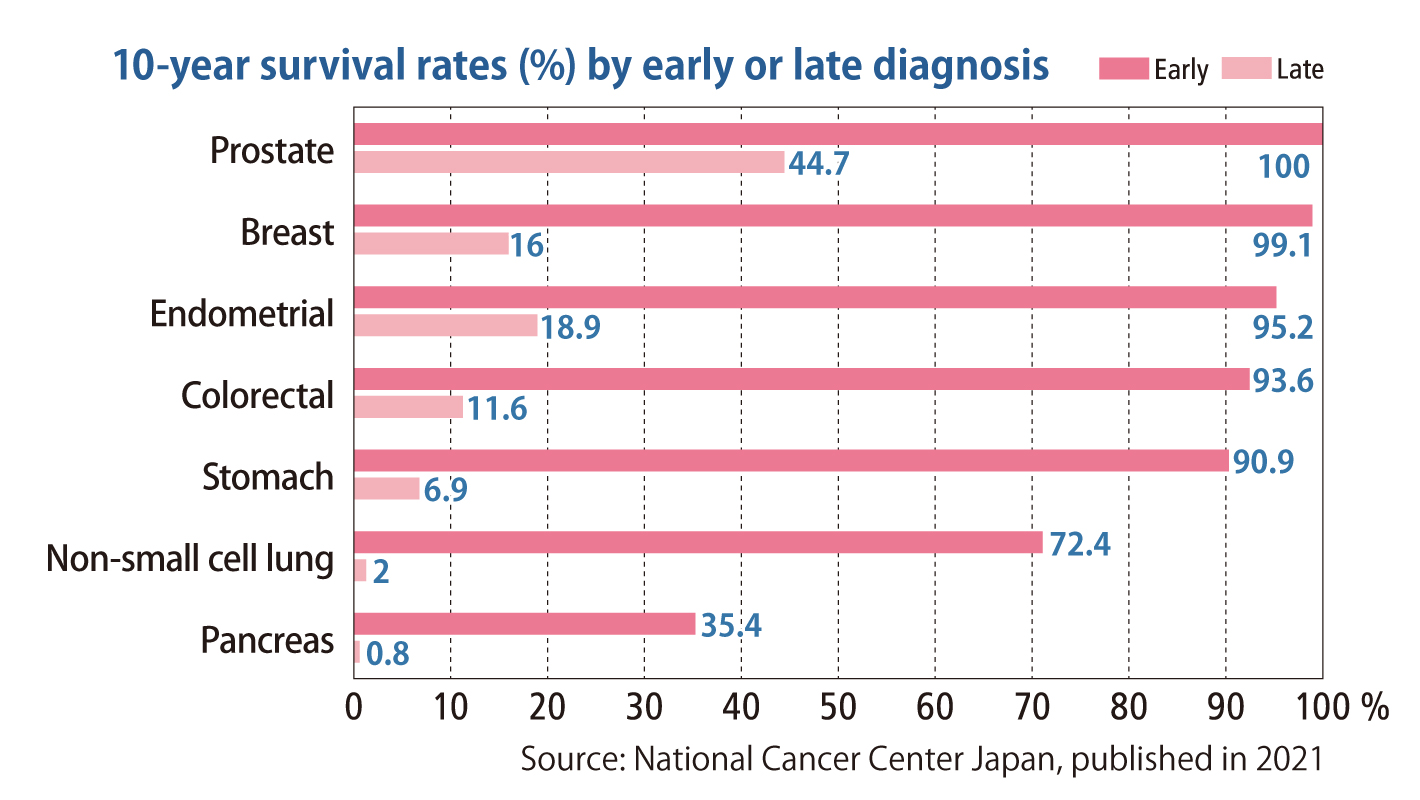
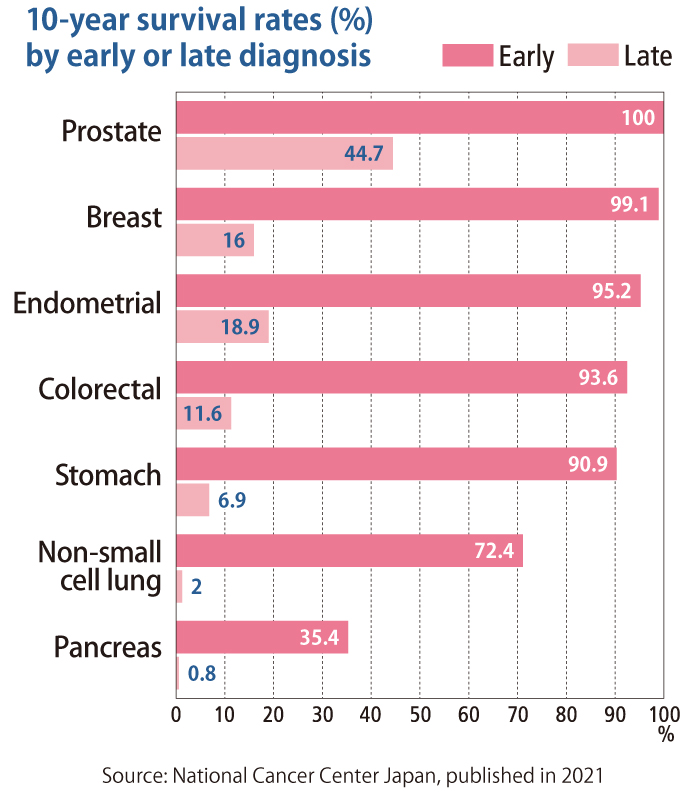
The Full-body Cancer Screening course checks for a wide variety of cancer using not only the powerful PET/CT scan, but also MRI scan, blood testing for tumor markers and more.
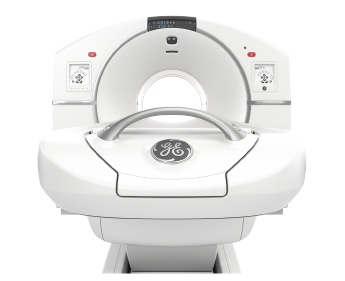
This course is recommended if you…
- want to have the whole body checked for cancer in one session.
- want a comprehensive screening for cancer.
- have a family history of cancer.
- have never been screened for cancer.
- are over 40 years of age.
Examination Process
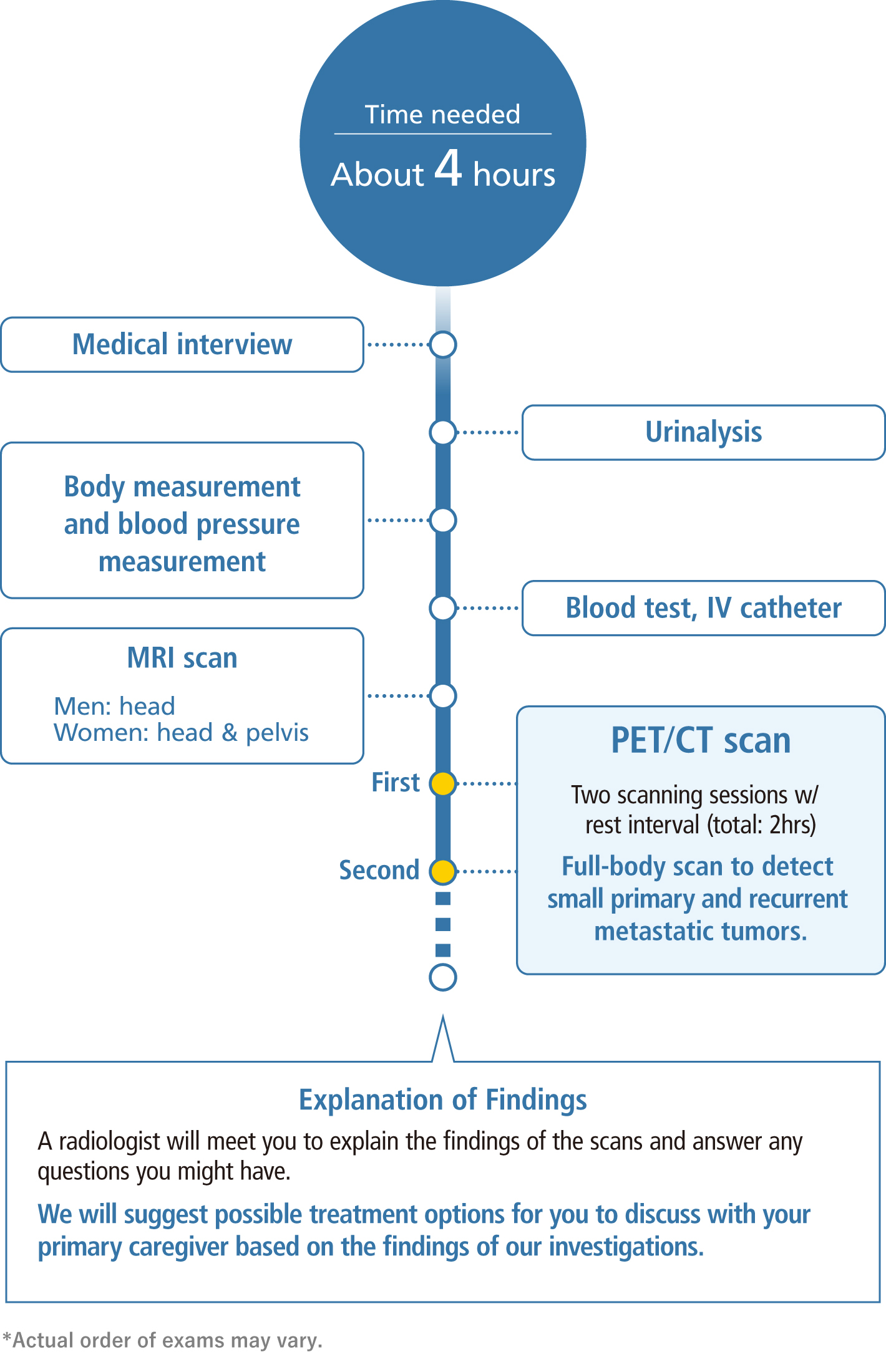
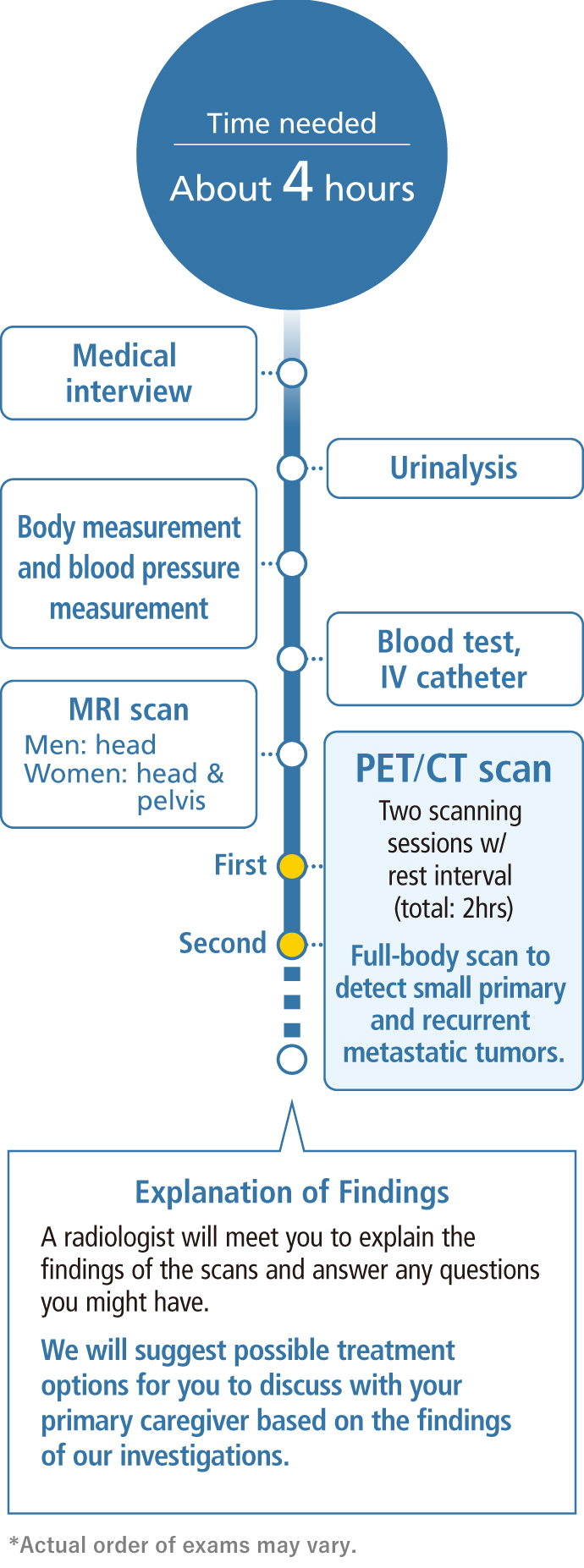
An unprecedented level of precision in cancer diagnosticsPET/CT scan
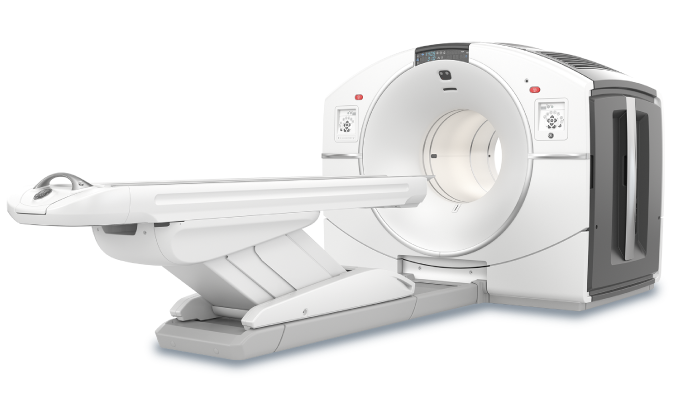
The PET/CT scanner is a cutting edge device that combines two imaging systems positron emission tomography (PET) and computed tomography (CT) into one machine. By merging the PET and CT images the malignant activity (PET) can be mapped onto the body's internal organs (CT), providing an unprecedented level of diagnostic clarity and utility.
Useful for early detection
Before a PET scan, the patient receives an IV infusion of 18F-FDG, which cancer cells absorb in greater concentration than healthy cells. 18F-FDG is detected by the PET scanner, making many hidden tumors clearly visible.
Full-body scan in 3D
The PET/CT scanner can take a 3D full-body image in about 20 minutes.
Painless Examination
After the 18F-FDG infusion, the patient rests on the bed for the medicine to spread throughout the body. The patient remains in a supine position for the duration of the test.
Useful for detecting relapse and metastasis
Because PET/CT is a full-body scan, it is useful for detecting distal metastasis and recurrent cancers.
By combining PET and CT, even small tumor masses can be located with great precision.
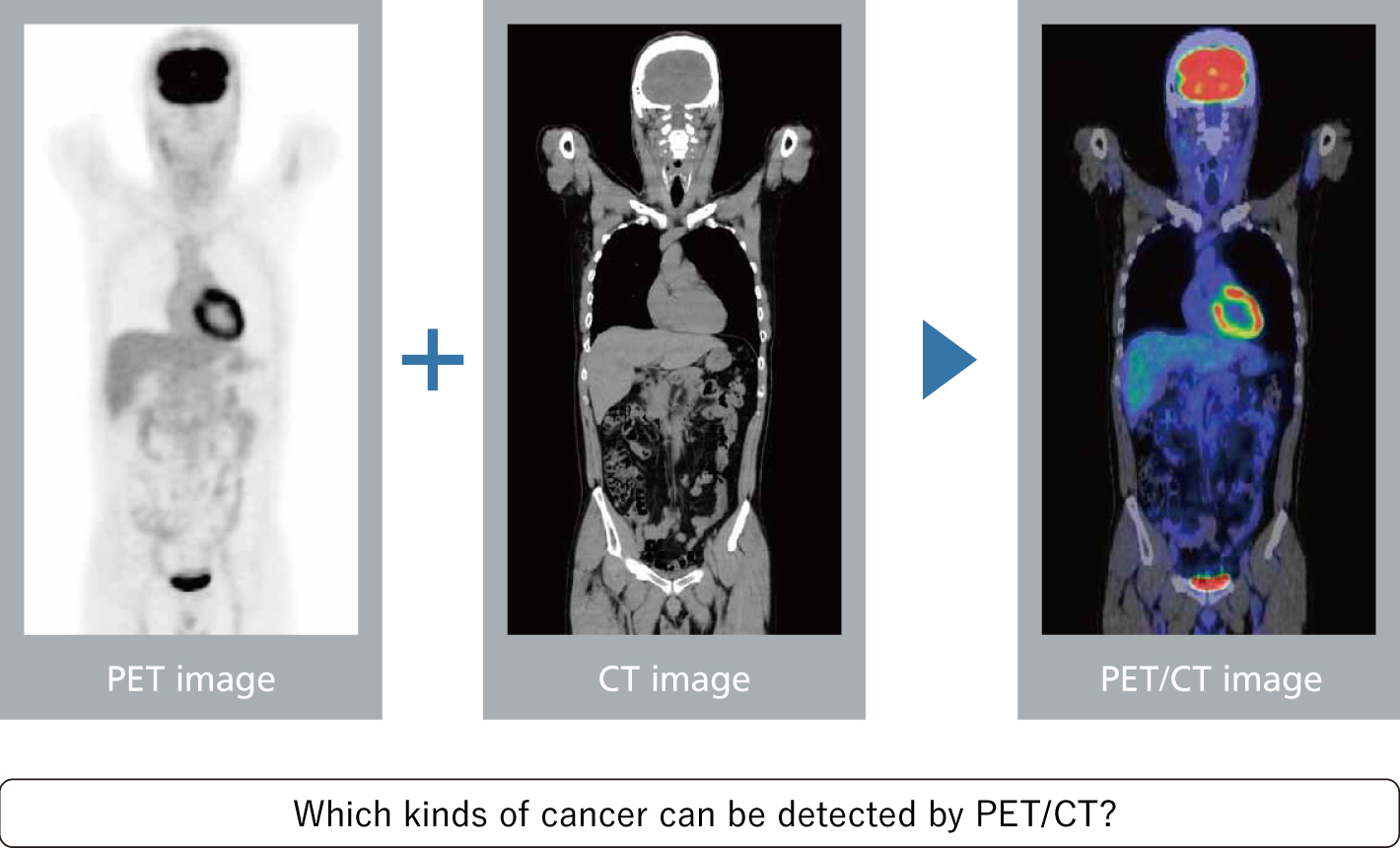
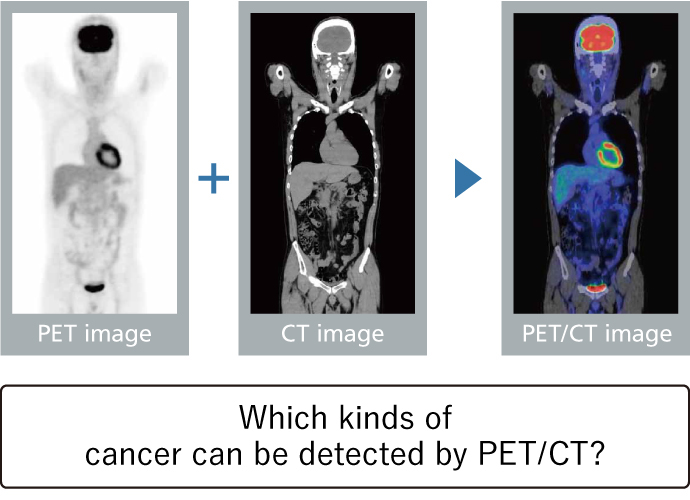
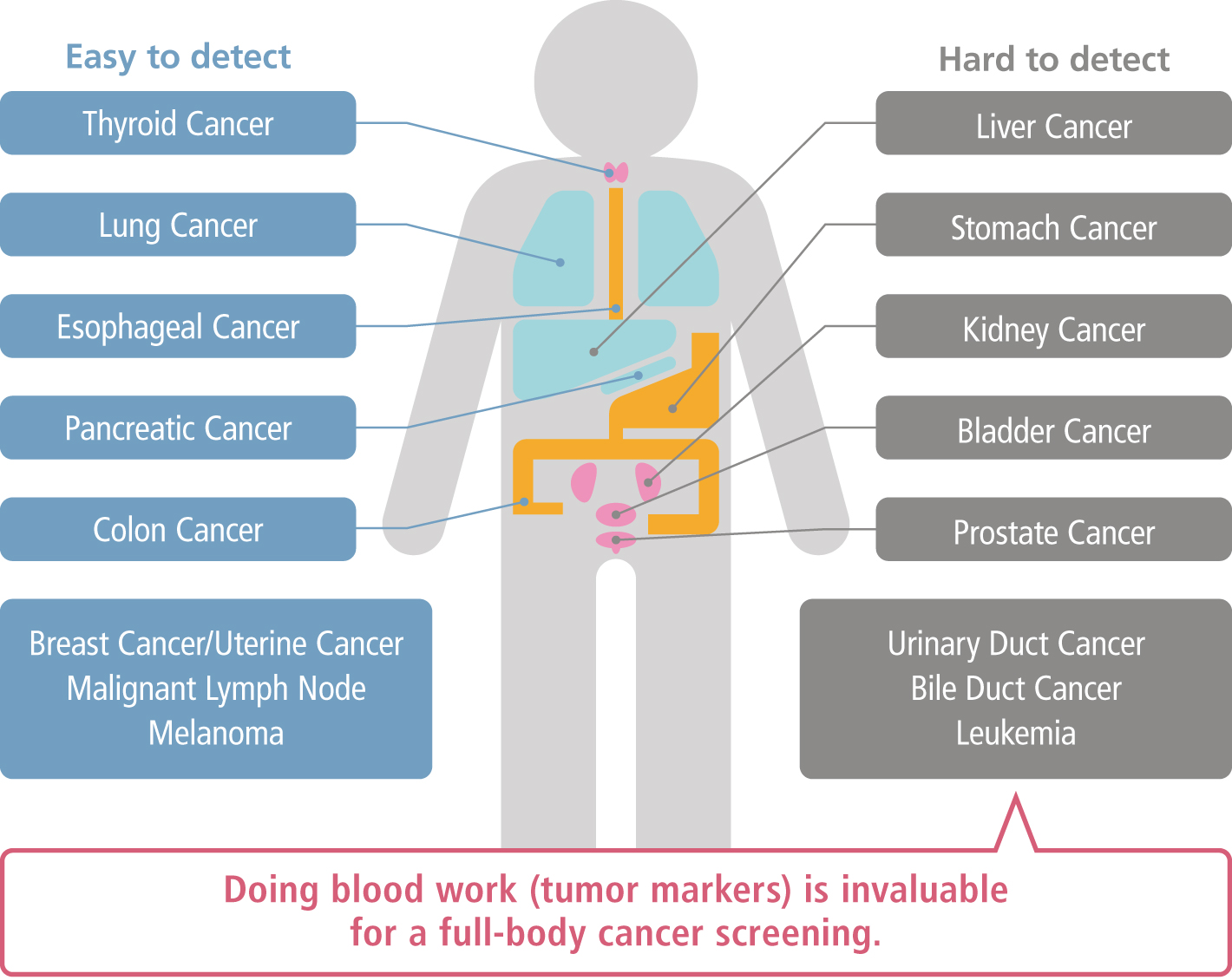
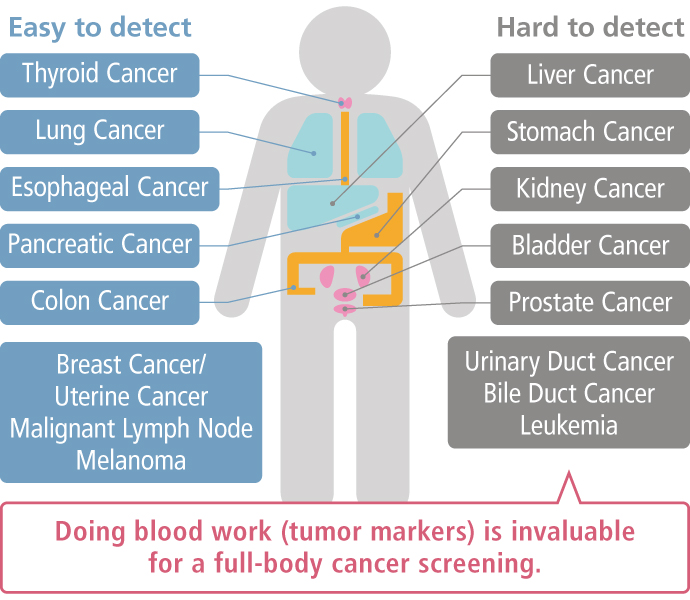
Optional tests
(You may add these tests on your health screening day )
| Type of examination | Screened conditions and abnormalities | |
|---|---|---|
| Tumor markers | ||
| PSA (Men only) | prostate cancer | |
| AFP | liver cancer | |
| CEA | gastric and colorectal cancer | |
| CA19-9 | pancreatic and gallbladder cancer | |
| CYFRA | squamous cell lung cancer | |
| CA125 (Women only) | ovarian and endometrial cancer | |
| CA15-3 (Women only) | breast cancer | |
| ABC Classification | pepsinogen test, helicobacter pylori antibody test | |
| HIV Antibody | AIDS | |
| LOX-index | risk assessment for myocardial and cerebral infarction | |
| Thyroid Function Test | thyroid dysfunction | |
| BNP | cardiac function | |
| Anemia Screening | iron deficiency | |
| Bone Density Test | osteoporosis | |
| Body Composition Analysis | body composition (e.g., hydration level, muscle mass, basal metabolic rate) | |
| Blood Pressure & Pulse Wave Analysis | arteriosclerosis | |
| My Signal Comprehensive | specific organ cancer screening – lung, colorectal, gastric, pancreatic, esophageal, breast (for women), and ovarian (for women) | |
| My Signal by Organ | single organ screening (by organ) – lung, colorectal, gastric, pancreatic, esophageal, breast (women only), ovarian (women only) | |
| Sputum Test | lung cancer | |
Optional tests (Later date)
| Type of examination | Screened conditions and abnormalities | |
|---|---|---|
| Gynecological exams | cervical cancer, uterine fibroids and more | |
| Mammogram | breast cancer, mastopathy, benign tumor | |
| Breast ultrasound | breast cancer, mastopathy, benign tumor | |





